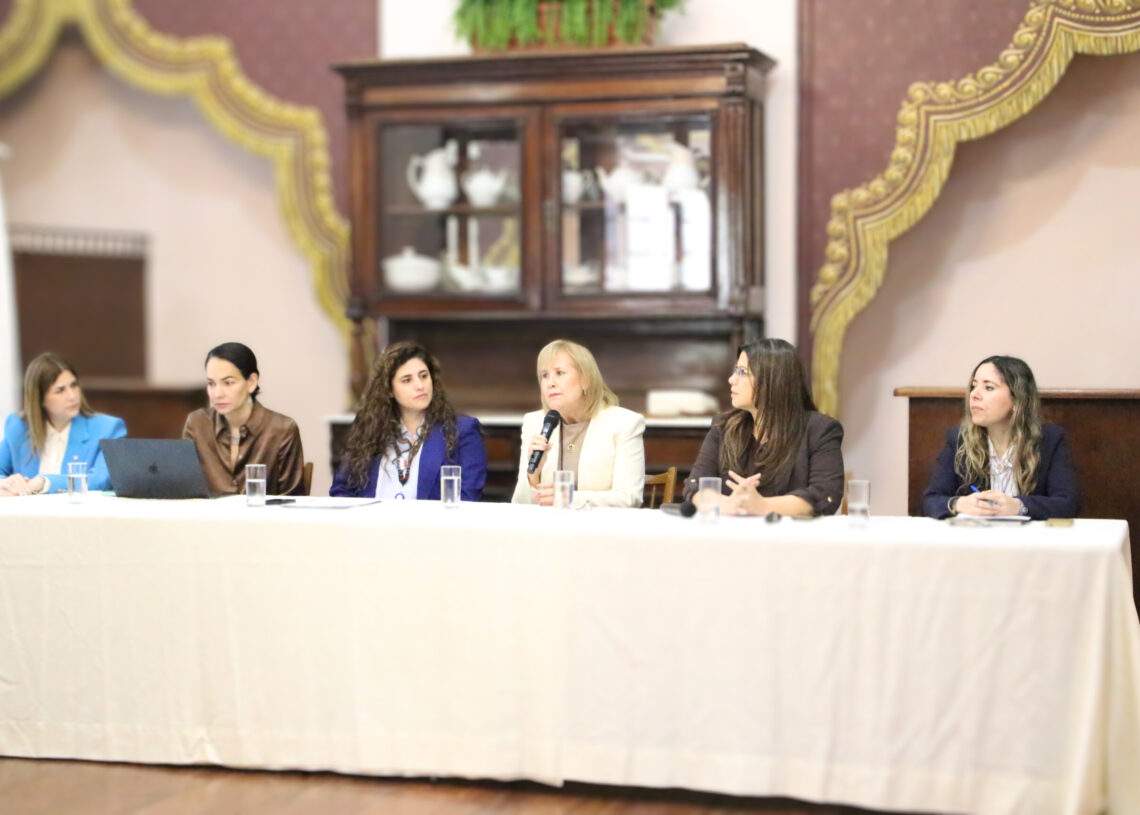On 25 September 2025, the Public Prosecutor’s Office of Paraguay, through the Deputy Prosecutor’s Office of the Specialised Unit against Trafficking in Persons and the Sexual Exploitation of Children and Adolescents, together with the Directorate of Criminal Policy, organised the Inter-institutional Workshop “The gender dimension in the relationship between drug trafficking and human trafficking”, with the support of the COPOLAD III programme.
The event brought together 40 technical representatives from the Public Prosecutor’s Office, the Judiciary, the Public Defence Ministry, the National Anti-Drug Secretariat, the National Police, the National Civil Aviation Authority, the National Migration Directorate and the Ministry of Justice. Its aim was to strengthen inter-institutional coordination in the criminal investigation of offences linked to drug trafficking and human trafficking, incorporating a gender and human rights perspective.
The workshop was opened by dra. María Soledad Machuca, Deputy Prosecutor of the Public Prosecutor’s Office, and Maddalena Masucci, Cooperation Attaché of the Delegation of the European Union in Paraguay. Also participating were COPOLAD III regional consultant Ana Linda Solano, COPOLAD III local consultant Madeleine Ruiz, and Nora Lezcano, who provided methodological support.
During the workshop, the regional and national diagnostics on the gender dimension of drug trafficking and human trafficking—two of the most widespread crimes worldwide—were presented. In addition, the guidelines approved by the Ibero-American Association of Public Prosecutors (AIAMP) were discussed, aimed at the early identification of victims of human trafficking exploited in drug trafficking, the prevention of their criminalisation and the focus of criminal prosecution on the criminal networks responsible.
“There is a duality: they are victims, but they are also forced to commit crimes. The challenge lies in identifying the signs that these people are acting under coercion, with low self-esteem and an inability to decide, due to the conditions of their recruitment. This does not mean impunity, but rather the need to apply principles that allow for liability to be assessed in light of the situation of exploitation”, explained dra. Machuca.
“It is essential to have an organised methodology and to understand the links between trafficking and drug trafficking networks, the actors involved and the geographical areas where they operate”, added Masucci.
The programme included two discussion panels:
-
The role of institutions in assisting women victims of trafficking exploited by drug trafficking networks.
-
Proposals for national, regional and international coordination for comprehensive support during criminal investigations.
This event forms part of the pilot phase of the project led by AIAMP and the COPOLAD III programme in Paraguay, Argentina and Brazil, which seeks to strengthen institutional capacities to ensure access to justice and the protection of victims in contexts of complex organised crime.






